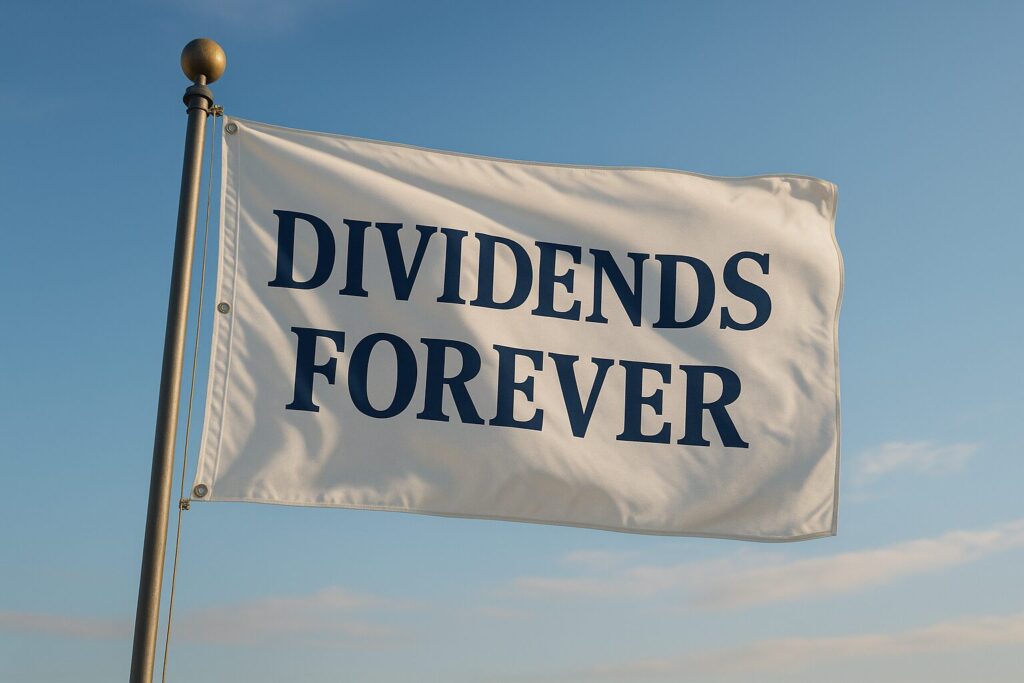
Want simplicity? These ETFs make dividend income stress-free.
If you’re a retiree looking for dependable income without the hassle of picking individual stocks, dividend-focused ETFs can be a perfect solution. They offer automatic diversification, low fees, and consistent cash flow—all with just a single click. Whether you want high yield, dividend growth, or broad exposure to quality dividend-paying companies, there’s an ETF that fits.
Here are six of the best dividend ETFs for retirees:
1. Vanguard High Dividend Yield ETF (VYM)
VYM is a favorite for conservative investors who want reliable income from high-quality companies. It tracks the FTSE High Dividend Yield Index, holding over 400 large-cap U.S. stocks with above-average yields. Think of names like Johnson & Johnson and JPMorgan Chase. With a yield around 3% and an ultra-low expense ratio of just 0.06%, VYM is a simple, cost-effective way to earn steady dividends from stable, blue-chip companies.
2. Schwab U.S. Dividend Equity ETF (SCHD)
SCHD is a standout for dividend growth investors. It focuses on companies with strong fundamentals and a consistent track record of increasing dividends over time. Its holdings are screened for quality, including high return on equity and solid cash flow. With a 3%+ yield, low volatility, and an expense ratio of 0.06%, SCHD offers a smart blend of income and long-term stability for retirees seeking dependable returns.
3. iShares Select Dividend ETF (DVY)
DVY targets high-yielding U.S. companies with a proven history of paying dividends. Its focus on utility, energy, and industrial stocks helps boost income potential. With a yield typically around 4%, DVY offers above-average income, though it may carry a bit more sector risk. Still, it’s a solid choice for retirees looking for immediate income from reliable, dividend-paying companies across various sectors.
4. Vanguard Dividend Appreciation ETF (VIG)
If you’re more concerned about dividend growth and stability than raw yield, VIG is a strong option. It holds companies that have increased dividends for at least 10 consecutive years. While the yield is lower (about 2%), these are high-quality businesses with growing earnings. VIG is a smart choice for long-term retirees who want income that keeps pace with inflation over time, plus a rock-bottom 0.06% expense ratio.
5. SPDR S&P Dividend ETF (SDY)
SDY invests in the top dividend-paying companies from the S&P 1500 that have increased their dividends for 20+ consecutive years. These “dividend aristocrats” are reliable and consistent, making this fund an excellent fit for retirees who want a history of payouts. With a yield between 2.5% and 3%, SDY balances income and quality, and its long dividend growth track record makes it a standout for cautious investors.
6. iShares Core High Dividend ETF (HDV)
HDV focuses on high-dividend stocks that also pass a screen for financial health and earnings stability, using a quality-first approach. With top holdings like ExxonMobil, Coca-Cola, and Verizon, HDV typically yields around 4%. Its defensive tilt and emphasis on high-quality companies make it appealing for retirees who want both income and peace of mind, especially during market volatility.
Final Thoughts
With just one or two of these ETFs, retirees can build a powerful, diversified income portfolio—without the stress of stock picking. Whether your priority is high yield, dividend growth, or quality companies, these ETFs provide a simple, reliable way to generate retirement income.
This post is adapted from my book:
Build Your Own Retirement Dividend Machine: Live off Dividends – The Safer Path to Retirement Income,
available at Amazon.com in paperback and eBook formats.
Disclaimer: This post is for informational purposes only and does not constitute investment advice. All investments involve risk, including possible loss of principal. Past performance is not indicative of future results. Always consult a financial advisor before making investment decisions.